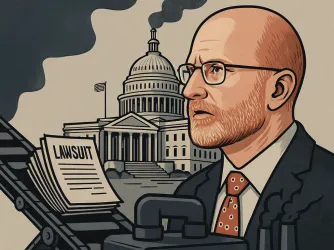Table of Contents
FIRE’s 12 Worst Colleges for Free Speech in 2012

Here's today's press release:
PHILADELPHIA, March 27, 2012—The Foundation for Individual Rights in Education (FIRE) released its 2012 list of the 12 Worst Colleges for Free Speech in The Huffington Post today. Harvard is new to the list this year, joining Yale, Syracuse, and the University of Cincinnati at the top of the list.

"These colleges and universities have deeply violated the principles that are supposed to animate higher education," said FIRE President Greg Lukianoff. "Sunlight is one of the best disinfectants, and the public needs to know which schools to watch out for."
Although schools appear on the list in no particular order, the 12 Worst Colleges for Free Speech are:
1. University of Cincinnati | 7. Michigan State University |
2. Syracuse University | 8. Colorado College |
3. Widener University | 9. Johns Hopkins University |
4. Harvard University | 10. Tufts University |
5. Yale University | 11. Bucknell University |
6. St. Augustine's College | 12. Brandeis University |
Each of these schools earned its place on FIRE's list by severely violating the speech rights of students, faculty members, or both.
The University of Cincinnati tops the list due to its shockingly restrictive free speech zone that limits certain types of student expression to just 0.1% of the school's 137-acre campus. The policy, which is now the subject of a federal civil rights lawsuit, threatens students with criminal prosecution for violations. The university has even refused to let students simply "walk around" to gather petition signatures outside the zone.
Syracuse's School of Education effectively expelled an education student who complained on his own Facebook page about a comment that he thought was racially insulting. The student was required to undergo counseling and diversity training just to earn a chance of readmission.
Widener University banned a law professor from campus because he had used hypothetical scenarios in class involving the dean.
Last fall, Harvard University pressured all freshmen to sign a morality pledge promising that they would exercise "civility," threatening academic freedom by announcing a code of ethics before students had taken a single course. Also, Harvard's licensing office prohibited Yale's freshman class from using the names of famous Harvard dropouts Bill Gates or Mark Zuckerberg on T-shirts for the annual Harvard-Yale football game. In December, Harvard's Arts & Sciences faculty effectively fired a longtime professor because he had published a controversial op-ed in India about ways to combat Islamic terrorism.
Yale University remains on the list after censoring cartoon images of Mohammed in an academic book about those very cartoons, and banning an anti-Harvard T-shirt that quoted F. Scott Fitzgerald referring to Harvard students as "sissies." Yale also suspended a fraternity for five years for satirical (if juvenile and intentionally offensive) outdoor chants, raised eyebrows when it gave academic justifications for closing down the Yale Initiative for the Interdisciplinary Study of Antisemitism not long after the center came under criticism for holding a conference about antisemitism, and almost canceled Yale's annual Sex Week because of its content.
St. Augustine's College banned a student from graduation merely for advising his fellow students on Facebook to come prepared for a contentious meeting about the school's recovery from a destructive tornado. After he sued, the college extended his punishment to ban him from last fall's Homecoming.
Michigan State University, Colorado College, Johns Hopkins University, Tufts University, Bucknell University, and Brandeis University are also on FIRE's "Red Alert" list for the "worst of the worst" colleges for free speech. In each case, the school has severely violated free speech rights and has persistently refused to acknowledge its mistake. Some schools even strengthened their speech codes, making them even more restrictive.
"Before they sign on the dotted line, prospective college students should consider the free speech record of the school they choose to attend," said FIRE Senior Vice President Robert Shibley. "Don't believe universities' paper promises of free speech if they are violating those promises in practice."
FIRE is a nonprofit educational foundation that unites civil rights and civil liberties leaders, scholars, journalists, and public intellectuals from across the political and ideological spectrum on behalf of individual rights, freedom of expression, academic freedom, due process, and rights of conscience at our nation's colleges and universities. FIRE's efforts to preserve liberty on campuses across America can be viewed at thefire.org.
CONTACT:
Robert Shibley, Senior Vice President, FIRE: 215-717-3473; robert@thefire.org
- Free Speech
- Litigation
- Student Rights
- Freedom of Conscience
- Faculty Rights
- Harvard University
- Brandeis University
- Bucknell University
- Tufts University
- Johns Hopkins University
- Colorado College
- Michigan State University
- St. Augustine's University
- Yale University
- Widener University School of Law
- Syracuse University
- University of Cincinnati
Recent Articles
Get the latest free speech news and analysis from FIRE.

Inside the Trump administration’s extortion-industrial complex

In Philly, a new generation finds its voice — and the tools to defend it

Say it with a song
